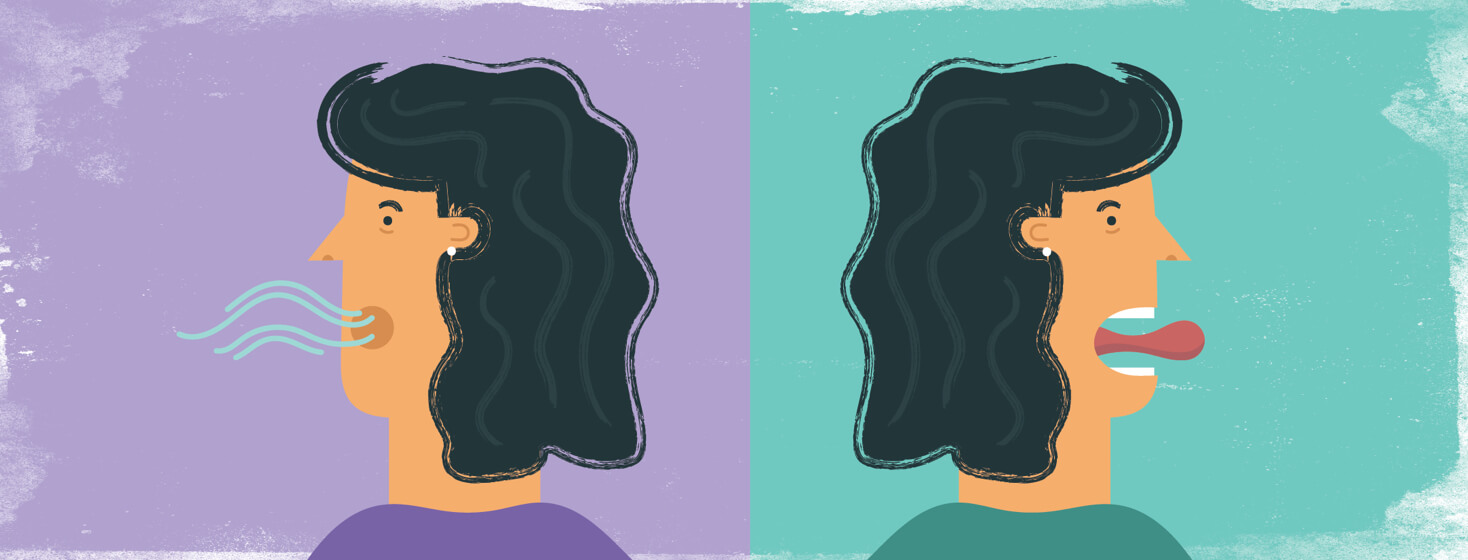Tongue Twisters - My Journey With Myofunctional Therapy
I became interested in myofunctional therapy when I discovered it could help with sleep apnea. My sleep apnea was diagnosed 12 years ago and I have been using a CPAP ever since. Using the CPAP definitely helps me and has improved my quality of life but it hasn’t been a magic bullet for me.
Like lots of CPAP users, I’m still always on the lookout for ways to get a better night’s sleep. I read that myofunctional therapy reduces AHI (the number of pauses in breathing each hour) by approximately 50 percent in adults. That was enough for me to want to give it a try.1
Meeting with a myofunctional therapist
I recently started seeing a myofunctional therapist named Kaitlyn Shrum. My husband’s reaction was one of amusement and innuendo. You can’t blame him, My first appointment involved lots of testing the strength of my lips and tongue.
My therapist asked me to eat food of different textures so she could observe my chewing and swallowing. I was given exercises to do at home which included all sorts of acrobatics with my tongue.
What is myofunctional therapy?
Myofunctional therapy is a new and growing field. The definition of myofunctional is "an exercise training program for the muscles around your face, mouth, and tongue."2
The definition doesn’t directly mention sleep apnea treatment. Obstructive sleep apnea is caused by obstruction of the airway by the tongue falling back. It would stand to reason that strengthening and toning the muscles of the tongue would reduce the amount the tongue blocked the airway. I was willing to continue treatment to find out.
A common tongue position in mouth breathers
Going to see Kaitlyn for the first time, I wanted to see if myofunctional therapy could help with my sleep apnea. After the full evaluation, it turns out my tongue sits low and forward in my mouth, a common position for habitual mouth breathers. I have been in the habit of mouth breathing for most of my life.
Indeed, when I was fitted for my CPAP, the technician asked if I breathed through my mouth or nose. I have since learned that nasal breathing during sleep can be much better for you than mouth breathing.3
Strengthing muscles in my tongue
I had already begun making the switch from habitual mouth breathing to nasal breathing when I first saw Kaitlyn for myofunctional therapy. She explained that the natural resting place for the tongue is gently suctioned to the roof of the mouth.
In order to encourage my tongue to rest there, we had work to do to strengthen the musculature in my tongue.
I am seeing and feeling progress
A few months of tongue exercises have made a huge difference for me. Muscles I didn’t even know I had have responded quickly. Myofunctional therapy is not a quick fix and it takes time to see results. The shift from mouth breathing to nasal breathing has noticeably improved my sleep, both in how rested I feel and also in the lower AHI my CPAP has recorded.
If myofunctional therapy can help improve my tongue posture to support proper nasal breathing, I’m encouraged to keep going with it.
Myofunctional therapy is another tool in my toolbox
I am not suggesting myofunctional therapy is a cure-all for sleep apnea. What it can do is strengthen and tone the muscles of the tongue and support proper nasal breathing.
My hope is to improve symptoms and reduce my AHI. Myofunctional therapy, exercising, eating well, and sleep hygiene can all support my ongoing CPAP therapy and help me feel my best while coping with sleep apnea.
Have you tried myofunctional therapy? Do you have any questions about it? Share with us in the comments below!

Join the conversation